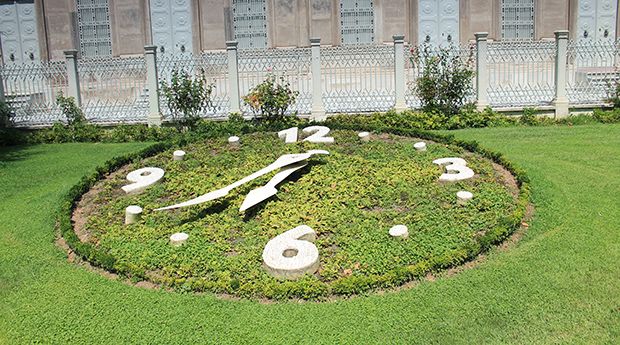In a market as volatile as Turkey, it is often not enough to get the direction of the market right – it is all about knowing when to act. Fund managers have enjoyed a stronger year in 2016 than they did last year, but having ridden the bull market a long way up they are now asking how much value is left.
Emerging markets are notoriously volatile, yet even among its peers, Turkey stands out for its wild fluctuations of performance, typically driven by global risk sentiment. An open and liquid market, investors can get in and out of the Turkish market very easily, encouraging these swings in performance.
With an average daily liquidity of around US$1.5bn, Borsa Istanbul is among the most liquid emerging markets exchanges, despite its meagre 1.6% weighting in the MSCI EM index meaning many EM funds have relatively small allocations to the country.
The benchmark Turkish index, the BIST 100, is around 25% of the size of its South African equivalent but has a similar size turnover in US dollar terms. This is due to the relative ease of going in and out of the Turkish market, said Selim Yazici, CEO at BNP Paribas Asset Management.
How fund managers deal with volatility is often the key to their success. Getting on the wrong side of it can lead to large losses, but, timed well, volatility also presents an opportunity for greater returns. Following a disappointing year in 2015, the Turkish equity market has returned around 24% in US dollar terms year-to-date, compared to around 6% for the MSCI EM index.
Performance has been strong across sectors. Auto stocks have done well, with Turkish manufacturers exporting to Europe where business conditions are showing signs of improvement, said Pinar Uguroglu, deputy CIO and head of research at BNPPAM.
“We favour high dividend-payers such as cement stocks, which benefit from increased domestic construction activity. Defence stocks are also delivering good returns and promise good growth potential due to both internal and external factors,” she said.
A number of fund managers also singled out bank stocks. “We like especially Turkish banks, which we expect to show strong earnings growth of more than 15% with a P/E of only 6.1 times in 2016,” said Emre Akcakmak, portfolio manager at East Capital.
Managers that do well in Turkey tend to take a tactical approach, trading in and out as market conditions evolve. Erdinc Benli, co-head of global emerging markets equity at GAM, said: “Turkey is a market where it usually pays to buy the lows and sell the highs. When things get tough, like last year or beginning of this year, you have to trust investors will be back, the market will rebound. So you buy value and try not to sell too early. Market corrections due to political uncertainty or noise often open up buying opportunities.”
On the back of its recent run, some managers are therefore currently on the sidelines or underweight.
Benli said: “We built up our positions from last autumn when the market was cheap, but since the January/February lows, we have seen a rally of 33% in US dollars in the overall market and between 30% and 50% in US dollars in some of our holdings, so we have taken some profit on that. We will wait for some market consolidation and a buying opportunity.”
Others believe there may still be value to wring from the market.
“Even at these levels, the market is not particularly expensive, trading at a P/E of 9.4 times estimated 2016 earnings, against an average of around 14 times from the broader global emerging markets universe,” said Uguroglu. ”Clearly, local currency funding costs are higher than the other markets, partially justifying such a discount, although the growth prospects for the Turkish economy, and therefore corporate earnings, are brighter than for most EM countries as well.”
Akcakmak also sees upside. “Supported by the loose monetary policies globally and the recent improvement in risk appetite, we have a fairly positive view on Turkish equities,” he said. “Even after the recent rally, Turkish stocks are trading at 9.7 times their expected 2016 earnings, which make them attractively priced at 22% discount to emerging peers.”
GDP and corporate earnings have both recently been revised upwards, and foreign participation in the equity market free-float is up. According to data from Matrix and BGC Partners, foreign participation is close to 65%, having not breached the 66% level since 2013. At the start of the year it was around 61.5%, the lowest figure since early 2014.
As an investment, Turkey competes with other larger emerging markets like South Africa and the BRIC nations. And right now, it compares favourably, said Hakan Aksoy, senior portfolio manager for bonds and high-yield at Pioneer Investments.
“Turkey pays a higher yield than peers like South Africa and a comparable yield to Russia. But it has higher growth potential than either of those countries, and much higher entrepreneurship,” he said.
Investors enjoy a broad universe of companies to choose from with solid management teams. Corporate governance may be an issue – Akcakmak cites it as one of the risks East Capital is most focused on, alongside currency risk – but this is all part of being an emerging markets investor. According to Yazici, it has “solid corporate governance practices relative to its peers”.
Victim of circumstance
For all this, many managers argue that Turkish fortunes, even more than those of other emerging markets, are determined by external factors.
Maarten-Jan Bakkum, senior emerging market strategist at NN Investment Partners, said: “There are two crucial factors driving Turkey: the oil price, which is very significant for a large oil importer; and US rate expectations, which determine global flows and the carry trade, and drives risk sentiment. Turkey is a high-beta market, and in 11 out of 12 months it is driven by global factors.”
These factors have recently been favourable. Oil prices have rebounded somewhat but remain relatively low. The Fed made its long-awaited first rate hike but the market is not expecting much more for now – the yield on the 10-year Treasury has dropped from close to 2.50% in the middle of last year to around 1.80%. If the US delays hikes for longer than expected, Turkey should be among the biggest beneficiaries.
Against this backdrop, many emerging market nations will be tempted to cut rates, and fund managers will not be surprised to see Turkey indulge this temptation. Such a move would boost the construction sector in particular, facilitating not only more house-building but various national infrastructure projects.
The arrival of a new central bank governor has generated even more interest in this question. Despite being the former vice-governor, Murat Cetinkaya is a relatively unknown quantity, but he is expected to be a safe pair of hands and most seem confident he will prove himself strong and independent of government interference.
The question represents an early test for Cetinkaya. Aksoy said: “The central bank will have to ask itself what is more important for the economy: lower rates or a stable currency? I expect it will judge that a higher rate will be more damaging than a weak lira, and so a dovish stance is likely.”
The concern is this could leave Turkey exposed to a sudden change in global macroeconomic conditions. While not expected, a sudden US rate hike could prove highly destabilising for the country given its large current account deficit, even after a year of cheap oil has helped ease the pressure. The central bank would be forced to follow suit, potentially aggressively, making loans less affordable and reducing consumer spending.
That could bring the public indebtedness issue to the fore. Turkey has seen strong credit growth in recent years, which has helped deliver strong GDP growth, but it reached a point where the government acknowledged it posed an increasing economic risk.
Benli said: “Loan growth looks much more sustainable now than it did, having come down from around 25%–30% in 2013 to around 10%–15% now. The government recognised things were overheating and implemented macro-prudential measures, such as restricting what credit cards could be used to pay for and increasing regulation around certain types of loans.”
However, the pace of credit growth remains higher than nominal GDP growth, which is around 9%. Leverage continues to increase, meaning Turkey is still vulnerable to changes in global macroeconomic sentiment.
“Should rate hikes continue at a moderate pace, not causing market disturbance, Turkey may not be among the best performers but should deliver positive performance in absolute terms,” said Yazici. Increased volatility in the early stages of the cycle would be likely but should be manageable as long as global conditions remain benign.
Yazici is also upbeat about the country’s geopolitical challenges. “We think that we are past the inflection point for the Syrian issue, while the Kurdish issue may not escalate further in the short term either,” he said.
Concerns about the increasingly authoritarian tone of Turkish politics may excite journalists and the European public, although fund managers appear more sanguine and the government is apparently pragmatic enough to keep markets onside.
Bakkum said: “Turkey has changed a lot in the last 10 years and the government has done a lot to stabilise the economy. We have seen improvements in growth, increased investment and more credit growth. It is true that the global environment has also been supportive, but Turkey has attracted a lot of foreign capital.”
To attract more, Turkey needs to do more to tackle problems like high inflation, and further reduce the current account deficit. If it did, it might enjoy the kind of sustained period of outperformance that countries such as Chile, Mexico and India have over the years. And that might encourage fund managers to be less inclined to cash out every time the market enjoys a brief rally.
To see the digital version of this special report, please click here
To purchase printed copies or a PDF of this report, please email gloria.balbastro@thomsonreuters.com



